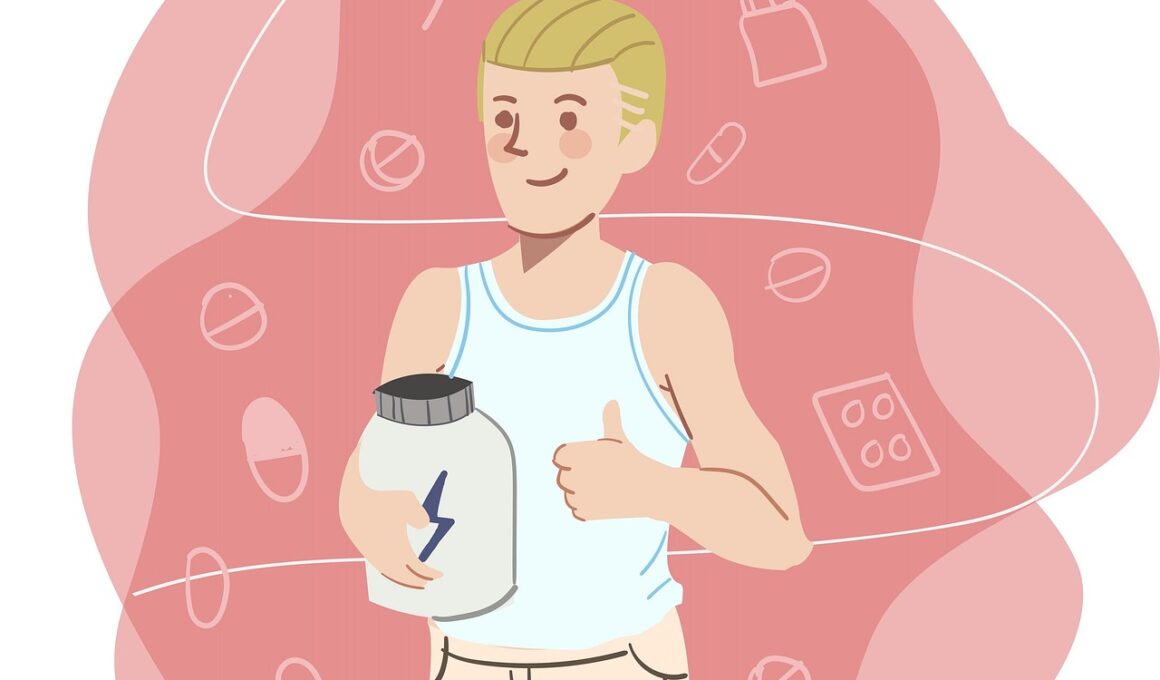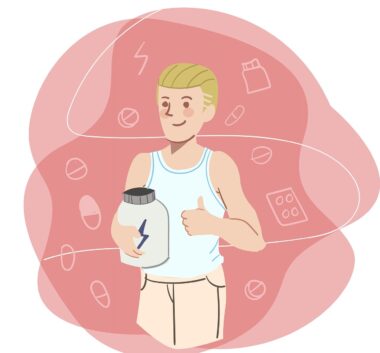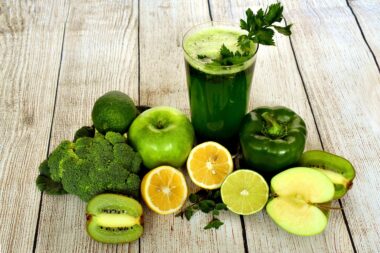Managing Inflammation Through Nutrition and Sleep in Athletic Recovery
Athletes often face the dual challenge of enhancing performance and recovering from rigorous physical demands. Essential to this process is managing inflammation, which can hinder recovery. Proper nutrition and adequate sleep are crucial components that help mitigate inflammation. Incorporating anti-inflammatory foods into an athlete’s diet plays a significant role in this management. Foods rich in antioxidants, such as berries, and omega-3 fatty acids, like salmon, can reduce inflammation effectively. Consuming adequate amounts of protein is essential for muscle repair. Furthermore, hydration through water and electrolyte-rich drinks supports overall recovery. Balancing these components is vital for optimal healing. Sleep, often overlooked, dramatically influences recovery. Getting sufficient quality sleep allows the body to heal and adapt, further enhancing performance. Thus, establishing a bedtime routine that promotes restful sleep can significantly impact athletic recovery. Creating sleep environments that are dark, cool, and quiet can aid in achieving restorative sleep. This dual focus on nutrition and sleep offers athletes a powerful strategy for managing inflammation and achieving recovery goals.
Understanding the interplay between sleep and nutrition is integral for athletes aiming to manage inflammation effectively. Sleep deprivation not only affects cognitive function but also amplifies inflammation in the body. Research shows that inadequate sleep can lead to increased levels of cytokines, which are pro-inflammatory agents. Consequently, athletes with poor sleep quality often report prolonged recovery times after strenuous exercise. To counteract these effects, athletes must prioritize both aspects of recovery. Specific nutrients can play a crucial role here; carbohydrates consumed post-exercise help replenish glycogen stores and can promote better sleep. Furthermore, the timing of nutrient intake is important; eating a balanced meal rich in protein, carbohydrates, and healthy fats a few hours before bedtime can improve sleep quality. On the other hand, foods rich in magnesium, such as leafy greens and nuts, have relaxative properties that can induce sleep. Elements of effective nutrition must focus on calming the body to facilitate a restful night. Hence, to optimize recovery, athletes should devise a consistent plan that addresses both sleep and proper nutrition strategies.
Integrating Sleep Hygiene with Nutrition Goals
To maximize recovery, integrating sleep hygiene practices with nutritional goals is essential. Sleep hygiene refers to habits and practices that are conducive to sleeping well. For athletes, this could mean establishing a routine that allows for consistent sleep duration. Consideration should include avoiding large meals or stimulants like caffeine close to bedtime. Practicing relaxation techniques such as deep-breathing exercises or gentle stretching can aid in promoting better sleep. Nutrition plays a supportive role in this context, where an athlete’s dinner choices can influence sleep quality. Consuming a light meal high in tryptophan, found in turkey and yogurt, helps enhance melatonin production. Additionally, hydration must be balanced, as excessive fluid intake may lead to nighttime awakenings. On the other hand, insufficient hydration can disrupt sleep patterns. It’s also crucial to avoid alcohol as it can interfere with sleep cycles. By intertwining sleep hygiene practices with nutrition guidelines, athletes can create an environment conducive to restful nights promoting recovery. This dual focus paves the way for athletes to reduce inflammation naturally and effectively.
Many athletes may overlook the importance of nutrient timing in their overall recovery strategies. Nutrient timing involves optimizing food intake around workouts, and it has a pronounced effect on inflammation management. The post-exercise window, often referred to as the anabolic window, is critical. Consuming a combination of protein and carbohydrates during this window can significantly improve recovery and reduce inflammation. Additionally, incorporating anti-inflammatory nutrients into post-recovery meals, such as turmeric and ginger, can enhance these effects. Both have shown promise in lowering inflammatory markers in the body. Moreover, the inclusion of antioxidants during this period can directly combat oxidative stress resulting from intense training. This emphasizes the need for athletes to plan their meals strategically. Equally important is ensuring enough caloric intake to meet energy expenditure during intense training phases. Ignoring caloric needs can lead to compromised immune function and extended recovery times. Thus, effectively timing nutrition in conjunction with sleep contributes to optimal inflammation management, making it an essential practice for athletes looking to enhance recovery.
The Role of Supplements in Recovery
In addition to food sources, many athletes consider supplements to assist in managing inflammation and enhancing recovery. Common supplements include omega-3 fatty acids, which are praised for their anti-inflammatory properties. Studies suggest that omega-3 can reduce muscle soreness and improve recovery after exercise. Creatine is another supplement that may aid recovery by increasing muscle energy stores and reducing inflammation in muscle tissue. Additionally, antioxidants like vitamin C and E may help reduce oxidative stress associated with intense training. However, athletes must approach supplementation with caution. Always consulting with a healthcare professional before introducing new supplements is crucial for safety and efficacy. While supplements can potentially enhance recovery, they should not replace whole food sources. Understanding the correct dosages and timing for supplements related to inflammation can also optimize their benefits further. Education around supplement use is vital, guiding athletes to use them strategically as part of a broader nutrition and recovery plan aiming for balanced overall health and optimum performance.
The significance of monitoring inflammation levels cannot be overstated in athletic recovery. Chronic inflammation can severely hinder performance, leading to injuries and prolonged recovery times. Athletes can utilize various methods to assess their inflammation. Blood tests can provide insight into inflammatory markers, helping athletes adjust their nutritional strategies. Moreover, keeping a detailed journal documenting nutritional intake alongside recovery response can also be beneficial. This practice allows for identifying what foods enhance performance and overall recovery. Including diverse, colorful fruits and vegetables in both daily meals and post-training snacks is essential. These foods are generally rich in different phytonutrients that combat inflammation. Additionally, athletes may choose to track their sleep patterns using fitness apps to correlate them with their recovery outcomes. By evaluating sleep quality and duration alongside defined inflammation markers, athletes can make informed decisions about their nutrition and lifestyle choices. This proactive analysis creates an empowering approach, enabling athletes to tailor their recovery strategies more effectively, ultimately fostering resilience and performance longevity.
Conclusion: Holistic Approach to Recovery
In summary, adopting a holistic approach to recovery involves integrating nutrition and sleep to effectively manage inflammation. For athletes, understanding the interplay between what they eat and their sleep patterns can provide significant benefits. Adopting healthy eating habits that incorporate anti-inflammatory foods, alongside prioritizing quality sleep, creates a synergy that supports recovery. By focusing on hydration, nutrient timing, and potential supplementation, athletes can develop comprehensive strategies that promote resilience. It fosters an environment conducive to healing and optimal training outcomes. As athletes become more aware of the influence of these factors, they are better equipped to take control over their recovery journeys. Simple changes in daily routines can lead to profound improvements in their athletic pursuits. This multifaceted approach champions not only physical recovery but mental well-being, forming a cornerstone for sustainable athletic performance. Regular assessments of dietary habits, inflammation levels, and sleep quality are key steps in ensuring ongoing success in recovery efforts. By prioritizing both nutrition and rest, athletes are empowered to manage inflammation effectively, laying the foundation for long-term athletic excellence.
Considering the wide-ranging implications of inflammation management in athletics, understanding the role of sleep and nutrition becomes paramount. Athletes today face fierce competition. As such, they must explore every possible avenue for enhancing performance and speeding up recovery. Prioritizing nutrition and adequate sleep is a fundamental part of any athlete’s journey. By incorporating anti-inflammatory elements into diets, adopting a tailored sleep plan, and monitoring recovery progress, athletes can practically transform their recovery process. Additionally, embracing a proactive approach towards health can unlock an athlete’s full potential, helping them break personal records. The emphasis on balance between physical training and recovery habits illustrates that achieving one’s goals requires a comprehensive strategy. Integrating these strategies into daily life enables athletes to optimize their performance while ensuring their overall well-being. This interconnected approach sustainably enhances athletic endurance and performance levels, encouraging athletes to view their relationship with food, sleep, and recovery in a more harmonious manner. With this perspective, athletes will be better equipped to handle the demands of their sport as they usher in a new era of optimal health and performance.





